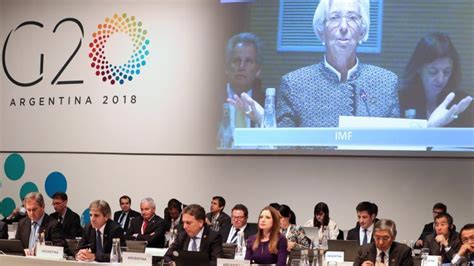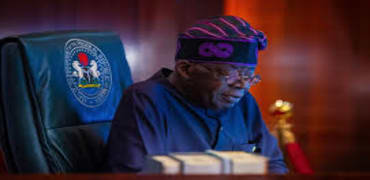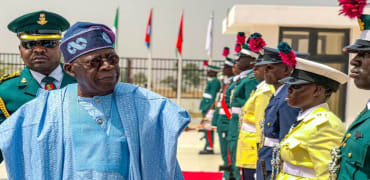U.S. Slaps 14% Tariff on Nigerian Goods—IMF Warns It Could Wreck Global Economy
U.S. Slaps 14% Tariff on Nigerian Goods—IMF Warns It Could Wreck Global Economy
By Achimi Muktar
In a move sending shockwaves through international markets, the United States has imposed a 14% tariff on goods from Nigeria, sparking alarm among economists and global leaders. The International Monetary Fund (IMF) has now weighed in, warning that the decision could pose a "significant risk" to the already fragile global economy.
The new tariffs, announced on Wednesday, target a wide range of Nigerian exports—including agricultural products and manufactured goods—raising fears of retaliatory trade measures and disrupted supply chains.
A Blow to Global Growth
Kristalina Georgieva, Managing Director of the IMF, issued a strong caution on Tuesday following the tariff announcement.
“We are still assessing the macroeconomic implications of the announced tariff measures,” Georgieva stated. “But they pose a significant risk to the global outlook, especially during a period of slow economic growth.”
She emphasized the need for diplomacy over confrontation, urging the U.S. and its trade partners to avoid further escalation.
“We appeal to the U.S. and its trading partners to work constructively to resolve trade tensions and reduce uncertainty,” she said.
Trump’s Trade War 2.0?
The tariff is part of former President Donald Trump’s revived protectionist push, which critics say threatens to upend fragile economies still recovering from pandemic-era disruptions, inflation, and monetary tightening.
Trump has argued that Nigeria and other developing countries have unfairly benefited from U.S. trade policy, a claim now being used to justify the new levies.
Markets reacted swiftly. Wall Street, European indices, and Asian markets all dipped amid fears of a renewed trade war. Economists worry that protectionist policies could further stall global investment, dampen growth, and raise costs for both businesses and consumers.
Nigeria in the Crosshairs
For Nigeria, the implications are especially concerning. The country is already grappling with currency instability, inflation, and an ongoing effort to diversify its economy away from oil. Tariffs on non-oil exports could derail recent gains made in agriculture and manufacturing, two sectors President Bola Tinubu’s administration is banking on for growth.
Industry experts warn that Nigeria’s exporters could be priced out of the U.S. market, affecting thousands of jobs and creating ripple effects throughout the economy.
What Comes Next?
The IMF is preparing to release a full analysis of the tariffs’ impact in its upcoming World Economic Outlook report, to be unveiled during the IMF/World Bank Spring Meetings later this month.
In the meantime, global leaders are urging restraint. With multiple economies already teetering from the weight of inflation and debt, another round of trade wars could be the tipping point.
While U.S. officials insist the tariffs are meant to protect domestic industries, critics argue the world cannot afford another round of isolationist policies.
As the dust settles, the big question remains: Will economic logic prevail, or are we headed into a new era of global trade conflict—with Nigeria caught in the crossfire?





















